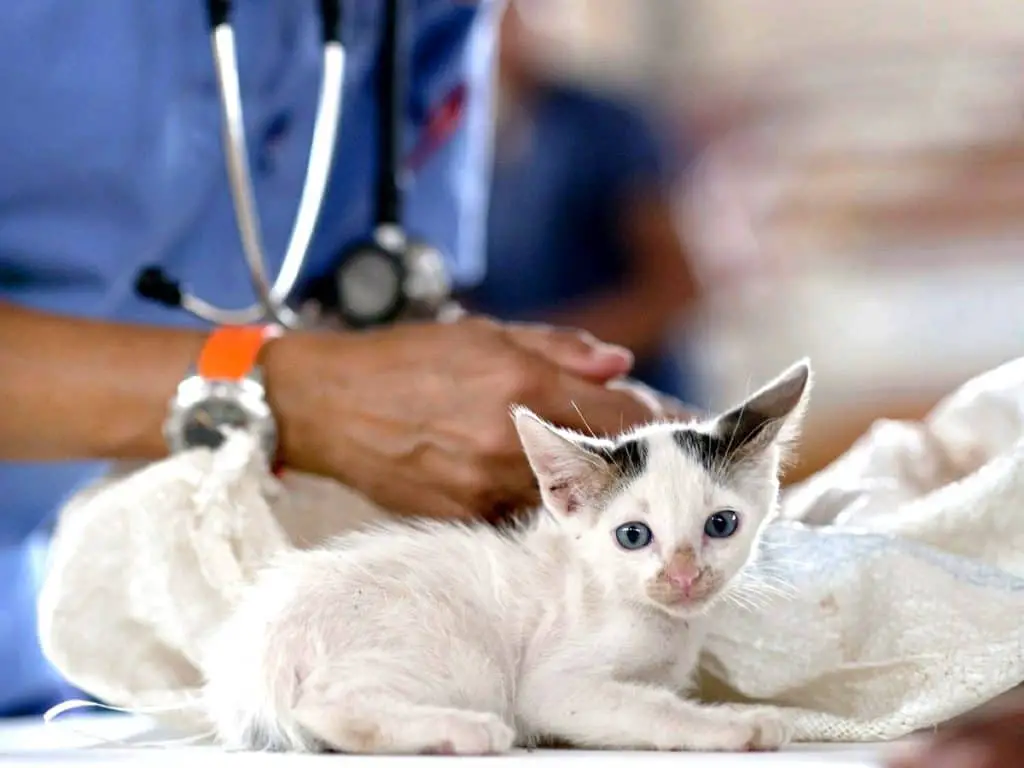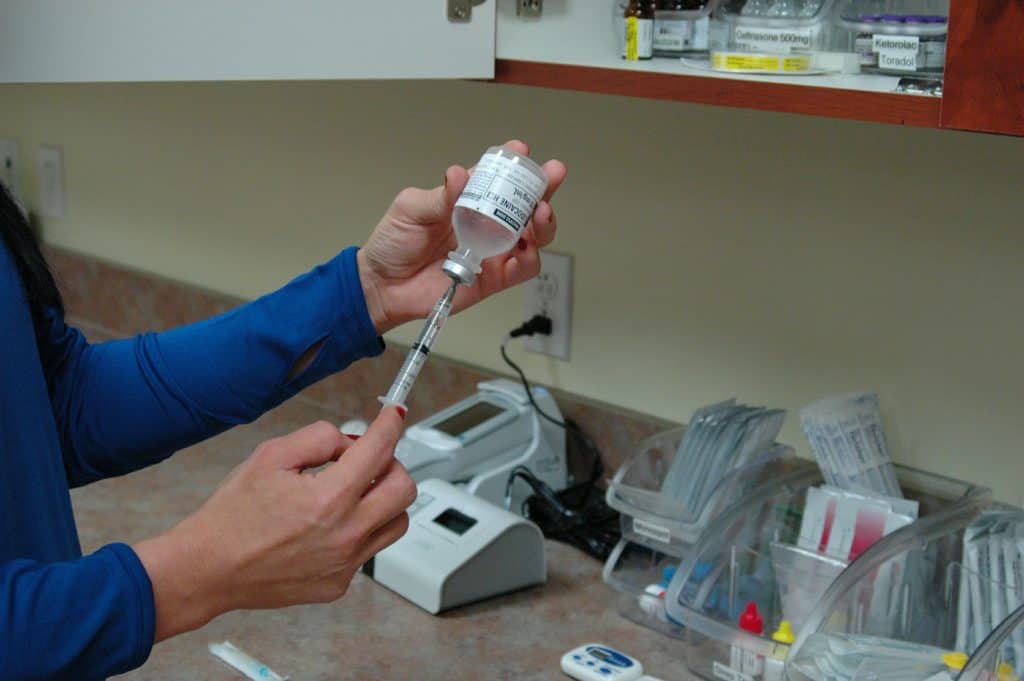Pet immunizations are essential tools to aid in the healthy upbringing of your pet. Learn more about the series of injections and why your pet needs them.
Why Does My Pet Need Immunizations and Vaccines?
While your pet is still young, it’s immune system isn’t mature enough to fight against common bacteria, viruses, nor the onset of common diseases. Immunization is the medical procedure in which an animal is provided an agent to help strengthen their immune system, as well as develop the antibodies to fight against certain illnesses.

It’s important to keep up to schedule with all the core vaccinations, as well as the booster shots that follow each year. While it may seem like a major inconvenience to especially busy pet parents, these injections provide your pet immunity from deadly diseases that may plague not only you and your household but the rest of your community if contagious.
Pet immunizations are a series of injections that provide lifetime protection for your pets. Not only do they minimize risks for the acquisition of widespread illnesses, but they also help your pet prevent ailments that may be caught in the future.
What Are the Types of Vaccines?
There are two types of vaccinations that can be administered to your pet. They are classified by the World Small Animal Veterinary Association (WSAVA) as the core, and non-core vaccines.
The core vaccines are those that should be taken by all animals, regardless of breed, size, or age. This type of vaccine specifically aids in the prevention of contracting widespread diseases such as:
- Parvovirus
- Canine distemper
- Canine hepatitis
- Rabies
- Heartworm
- Panleukopenia, or feline distemper
- Feline Calcivirus
- Feline Herpesvirus
Meanwhile, non-core vaccines are those that should be administered based on the pet’s lifestyle and exposure risk. They are considered as supplements depending on the specific pet’s needs. This includes:
- Bordetella bronchiseptica
- Leptospira bacteria
- Borrelia burgdorferi
- Feline leukemia virus
- Chlamydophila felis
- Feline immunodeficiency virus
Can I Vaccinate My Own Pet?
You may provide your own pet with its own set of immunizations, however, state and health public officials would not recognize this legally.
Technically speaking, only veterinarians are certified by the state to officially provide these injections. While it may pose some benefits for you to do it at home, you will have to sign a release form that acknowledges risk of self-administration.
The convenience and assurance you get from having the procedure done at an authorized hospital with competent staff is definitely unmatched compared to having to do it yourself. Going to your veterinarian for the procedure is what is generally recommended.

What Happens if I Don’t Vaccinate My Pet?
Not giving your pet the immunizations he needs may mean that your pet is highly susceptible to acquiring a wide range of illnesses that may cost more money to treat later on.
If you don’t give your pet any form of immunization, his bodily functions and immune systems are at risk of contracting diseases he might not be able to handle. This could lead to several unwanted outcomes that could be prevented with regular injections.
While there aren’t any studies that show the definite outcome of not submitting your pet to immunizations, it heightens the risk that your pet might catch something along the way.
Are Shelter Cats and Dogs Vaccinated?
Yes, they are. Vaccination is an integral part of any shelter or pet organization’s mission to protect their animals’ health and well being.
These pets are provided with the core vaccines most commonly administered in your vet hospital.
Should you decide to adopt a pet from the shelter, you are provided with the assurance that the animal isn’t exposed to disease, nor will it spread illness to your home and pets.
Care Animal Hospital Now Carries the Rabbit Hemorrhagic Disease Vaccine for Your Pet Rabbits!
RHDV2 is a highly contagious virus that infects wild and domestic rabbits and hares. The virus damages the liver leading to internal bleeding. The disease caused by the virus, simply called rabbit hemorrhagic disease (RHD), may kill up to 80% of infected animals. Due to the confirmed number of species already infected by the disease, it should be assumed that all rabbit and hare species in the United States are susceptible to RHDV2. Importantly, RHDV2 does not impact human health.
How It Spreads
The virus is extremely hardy and can survive outside of an animal host on contaminated materials. Research has shown that the virus can survive in the environment for up to 15 weeks at room temperature and can also survive freezing temperatures. The virus spreads through direct contact between rabbits, or indirectly through contact with meat, fur, blood, urine, feces, and materials that the infected rabbit touched (e.g., plants, bedding, cages, people’s clothes and shoes, etc.).
The virus can last for a long time on materials contaminated through contact with the urine, feces, saliva, or tissue from an infected rabbit. Thus, the greatest risk of RHDV2 spreading to new areas is from people moving infected rabbits and contaminated materials. Guidelines for how to prevent the spread of RHDV2 are in place for people who interact with rabbits or rabbit-related supplies.
The first two months of 2023 have seen new RHDV2 confirmations in wild rabbits in California, Texas and Wyoming, including spread into newly affected counties. Rabbit Hemorrhagic Disease is considered endemic in most Western US states and has also killed domestic rabbits in several Eastern states.
RHDV2 has been detected in domestic and/or wild rabbits in twenty-four (24) California counties and the California Department of Food and Agriculture (CDFA) considers the disease endemic in those counties. CDFA is taking limited regulatory action. RHDV2 has continued to spread in Northern California with recent detections in wild jackrabbits in Santa Clara, Sacramento, Glenn, Colusa and Napa Counties.
Check out RHDV for maps and more information.

